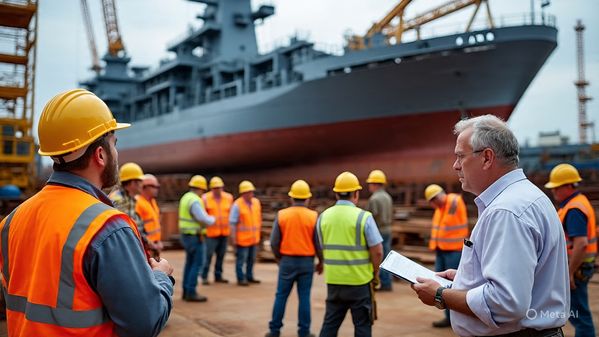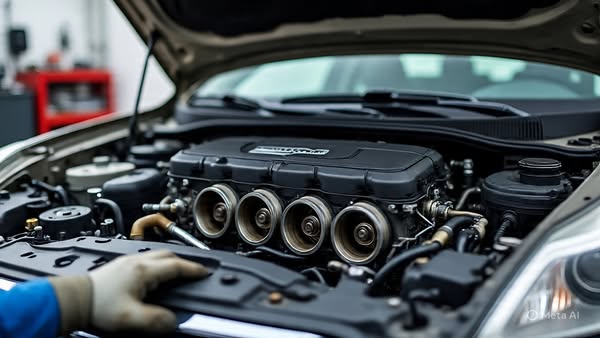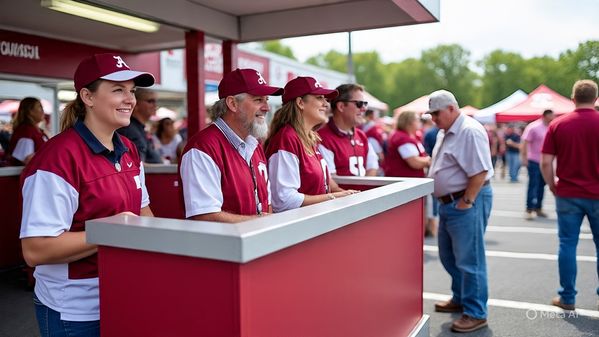
Christopher Scholtes: The Tech Trailblazer Quietly Reshaping Our Digital World (2025 Update)
Christopher Scholtes: The Tech Architect You Might Not Know (But Should)
Okay, let’s be real. When you think “tech titan,” names like Musk, Zuckerberg, or Nadella probably spring to mind. They dominate headlines, tweets, and late-night talk shows. But what about the quieter forces? The builders operating behind the scenes, laying the digital foundations we all rely on without necessarily seeking the spotlight? That’s precisely where Christopher Scholtes comes in.
For over two decades, Christopher Scholtes has been a consistent, yet often understated, force in the technology landscape. He’s not the guy making bombastic predictions on X; he’s the one meticulously building the systems that make those predictions possible. Think less flashy keynote, more complex code repository. If the tech world is a sprawling metropolis, Scholtes is the brilliant civil engineer designing the unseen infrastructure – the power grids, the water systems, the networks – that keep everything humming. His journey is a masterclass in sustained innovation, operational excellence, and a focus on solving real problems, not just chasing hype.
In this deep dive (2025 update!), we’re pulling back the curtain on Christopher Scholtes. We’ll trace his path from early ventures to his current powerhouse companies, unpack his unique approach to technology and leadership, explore the tangible impact he’s having right now, and ponder what his vision might mean for our increasingly digital future. Forget the usual tech bro narrative; this is about substance, execution, and the kind of lasting influence that truly shapes industries.
From Humble Circuits to High-Impact Hustle: The Scholtes Origin Story
Every innovator has a starting point. For Christopher Scholtes, the spark ignited early, rooted in a fundamental curiosity about how things worked. Unlike some prodigies coding in diapers (or so the legends go!), Scholtes’ path was more about applied problem-solving. Early accounts and interviews hint at a fascination with taking things apart – radios, appliances, early computers – not just to see the components, but to understand the logic binding them together. This wasn’t just tinkering; it was reverse-engineering systems thinking from the ground up.
His professional journey didn’t launch him straight onto the Fortune 500 stage. Like many true builders, Scholtes cut his teeth in the trenches. He gained invaluable experience in operational roles within established tech and telecommunications companies. This wasn’t glamorous work. It involved grappling with legacy systems, navigating complex corporate structures, and solving the gritty, day-to-day problems that keep businesses running. Crucially, this period instilled in him a deep respect for real-world constraints – budgets, timelines, scalability challenges, and the human element of technology adoption. It was the perfect anti-dote to purely theoretical tech dreams.
This foundational period wasn’t just about paying dues; it was about identifying gaps. Scholtes witnessed firsthand the inefficiencies plaguing large organizations, particularly in how data flowed (or didn’t flow) between departments and systems. He saw the frustration of employees battling clunky interfaces and the strategic blindness caused by fragmented information. This direct exposure to operational friction became the fertile ground where his entrepreneurial vision took root. He didn’t just want to build cool tech; he wanted to build tech that solved the tangible headaches he’d experienced and observed. This user-centric, problem-first mentality became a hallmark of his future ventures.
Omnistream: The Engine Room of Scholtes’ Vision
If we’re talking about Christopher Scholtes‘ tangible impact, Omnistream is arguably the crown jewel. Founded by Scholtes, this company isn’t about consumer flash; it’s about enterprise backbone. Omnistream specializes in supply chain intelligence and optimization software. Sounds complex? At its core, it’s about answering critical questions: Where is my stuff right now? What’s disrupting its journey? How can I get it where it needs to be faster, cheaper, and more reliably?
Omnistream tackles the notoriously messy world of global supply chains. Think ocean freight, air cargo, trucking, warehousing – a multi-trillion dollar ecosystem historically plagued by opacity, delays, and manual processes drowning in paper and spreadsheets. Scholtes saw this chaos not as an insurmountable problem, but as a massive opportunity for intelligent software. Omnistream’s platform acts as a central nervous system, ingesting vast amounts of data from carriers, ports, sensors, and internal systems. But raw data is just noise. The magic lies in the analytics.
Here’s where Scholtes’ operational DNA shines through. Omnistream isn’t just a dashboard; it’s a predictive and prescriptive engine. Using sophisticated AI and machine learning (constantly refined, as of 2025), the platform doesn’t just tell you a shipment is late; it predicts potential delays days in advance based on weather patterns, port congestion, historical carrier performance, and even geopolitical events. More importantly, it suggests concrete alternatives: reroute via a different port, shift to air freight for critical components, adjust production schedules downstream. It’s about turning reactive firefighting into proactive strategy.
The results speak volumes. Companies using Omnistream consistently report significant metrics improvements:
-
Reduced Lead Times: Often by 15-25% through optimized routing and reduced dwell times.
-
Lower Logistics Costs: Savings of 10-20% via better carrier selection, reduced expediting fees, and minimized inventory holding costs.
-
Increased Supply Chain Resilience: Dramatically improved ability to anticipate and mitigate disruptions (a critical factor post-pandemic and ongoing global volatility).
-
Enhanced Visibility: Real-time tracking down to the SKU level across multi-modal journeys.
Omnistream exemplifies Scholtes’ core belief: applying cutting-edge technology not for its own sake, but to solve fundamental, high-value business problems with measurable ROI. It’s the “engine room” tech powering countless products on shelves worldwide, often unseen by end consumers, but absolutely critical to the businesses relying on it.
Beyond Omnistream: Scholtes’ Expanding Tech Ecosystem
While Omnistream remains a flagship, Christopher Scholtes is far from a one-company wonder. His entrepreneurial drive and systems-thinking mindset have led to involvement in a broader tech ecosystem, often focusing on foundational infrastructure and enabling technologies. Think of it as building the picks and shovels for the digital gold rush.
One significant area is communications infrastructure. Scholtes has been an investor and strategic advisor through entities like Scholtes Ventures in companies pushing the boundaries of connectivity. This isn’t just about faster consumer broadband (though that’s part of it). It’s about enabling the next wave of applications: ultra-reliable low-latency communication (URLLC) for industrial IoT and autonomous systems, massive machine-type communication (mMTC) for sensor networks, and robust, secure backbones for critical services. He understands that innovations like the metaverse (in its evolving 2025 forms), pervasive AI, and advanced telemedicine depend on underlying networks being far more capable and resilient than they are today.
Beyond connectivity, Scholtes has shown consistent interest in data interoperability and security. He recognizes that the true power of data – whether for optimizing supply chains, training AI models, or personalizing experiences – is unlocked only when it can flow securely and meaningfully between different systems and organizations. This has led to backing ventures focused on secure data exchange protocols, advanced API management platforms, and privacy-enhancing computation technologies. In a world drowning in data silos and grappling with escalating cyber threats, these are not niche concerns; they are existential for digital progress.
Furthermore, Scholtes’ influence extends into applied AI and automation, particularly within the B2B and industrial sectors. He tends to favor companies deploying AI not for gimmicks, but for tangible operational improvements: predictive maintenance in manufacturing, intelligent process automation in logistics and finance, optimizing energy grids, or enhancing cybersecurity threat detection. The common thread? Leveraging technology to augment human capability, drive efficiency, and create robust, self-healing systems. This portfolio approach reinforces his role as an architect building the critical layers of our digital future.
The Scholtes Philosophy: Execution Over Hype, Systems Over Silos
So, what makes Christopher Scholtes tick? What’s the underlying philosophy driving his choices and shaping his companies? If we distill it down, several key principles emerge, starkly contrasting the “move fast and break things” mantra of earlier tech eras:
-
Problem-First, Technology-Second: This is paramount. Scholtes doesn’t start with a cool algorithm and look for a problem. He deeply understands a specific, often complex, real-world pain point (like supply chain chaos) and then seeks or develops the technology stack to solve it effectively. Technology is the tool, not the destination.
-
Operational Excellence is Non-Negotiable: His background instilled a deep respect for execution. Building great software is only half the battle. Deploying it successfully at scale within complex organizations, ensuring user adoption, providing reliable support, and demonstrating clear ROI are equally critical. His companies are known for robust implementation methodologies and strong customer success teams.
-
Systems Thinking: Scholtes rarely views problems in isolation. He sees interconnected systems. A delay at a port impacts manufacturing schedules, which impacts inventory, which impacts sales. His solutions, like Omnistream, are designed to model these complex interactions and provide holistic optimization, breaking down data silos within and between organizations.
-
Long-Term Resilience over Short-Term Hype: While embracing innovation, there’s a discernible focus on building sustainable, resilient businesses and technologies. This means robust architectures, scalable solutions, and a keen awareness of risk (operational, cyber, geopolitical). It’s about building to last, not just to flip or trend.
-
Empowering People (Quietly): Unlike the charismatic CEO persona, Scholtes’ leadership style, as described by colleagues, tends towards being analytical, empowering, and focused on team capability. The goal is to build organizations where talented people can solve hard problems effectively, not where they revolve around a single personality cult. Success is attributed to the team.
This philosophy translates into a distinct company culture within his ventures: less ping-pong tables and free sushi as distractions, more focus on deep expertise, collaborative problem-solving, and delivering tangible value to customers. It’s a builder’s ethos.
Christopher Scholtes’ Impact: Beyond the Bottom Line
Measuring Christopher Scholtes‘ impact solely in revenue figures or company valuations misses the broader picture. His influence ripples through industries and the tech ecosystem itself in significant ways:
-
Democratizing Complex Tech: Companies like Omnistream take incredibly sophisticated technology – big data analytics, predictive AI, complex optimization algorithms – and package it into usable software for logistics managers, procurement officers, and warehouse supervisors. It’s putting powerful tools into the hands of operational experts who aren’t data scientists, enabling better, faster decisions on the front lines. This “democratization” is crucial for widespread efficiency gains.
-
Building the Invisible Infrastructure: Scholtes’ focus on communications infrastructure, data interoperability, and industrial AI is about creating the essential, yet often unseen, layers that enable future innovations. Faster, more reliable networks underpin everything from autonomous vehicles to remote surgery. Secure data exchange is fundamental for personalized medicine and collaborative R&D. He’s investing in the digital equivalent of highways and power grids.
-
Enhancing Global Resilience: The work Omnistream does directly contributes to making global supply chains more transparent, agile, and resilient. In an era marked by constant disruption – pandemics, climate events, geopolitical tensions – this isn’t just good business; it contributes to economic stability and the reliable flow of essential goods. Scholtes’ ventures are part of the solution to systemic fragility.
-
A Counter-Narrative to Tech Excess: In a landscape sometimes dominated by hype cycles, ethical missteps, and short-termism, Scholtes’ model stands out. It demonstrates that sustainable, valuable, and ethically sound tech businesses can be built by focusing relentlessly on solving real problems with robust technology and operational discipline. He provides a blueprint for responsible tech entrepreneurship.
His impact is felt by:
* Business Leaders: Who gain unprecedented control and insight into their complex operations.
* Consumers: Who benefit (often unknowingly) from more reliable product availability and potentially lower costs driven by efficiency.
* The Tech Industry: Which gains a model of building foundational, high-value B2B technology.
* Employees: Who work on challenging problems within cultures focused on expertise and execution.
The Future Through the Scholtes Lens: What’s Next?
Predicting the future is risky business, but looking at Christopher Scholtes‘ established trajectory and focus areas gives us strong clues about where he sees the puck heading and where he’s likely to invest his energy:
-
AI Integration Deepens (Responsibly): Expect Scholtes’ existing platforms, especially Omnistream, to become even more intelligent. We’re talking about AI moving beyond prediction to true autonomous action within defined parameters – automatically rerouting shipments, negotiating spot rates with carriers based on real-time capacity, or triggering production adjustments based on inbound material flows. However, anticipate a strong emphasis on explainable AI and human oversight – avoiding “black box” solutions.
-
Convergence of Physical & Digital (IoT on Steroids): Scholtes has long understood the power of sensor data. The future involves deeper integration of IoT data streams (from cargo ships, warehouse robots, manufacturing equipment, even products in transit) into the central decision-making platforms. This creates a living, breathing digital twin of the entire physical logistics and industrial world, enabling hyper-optimization.
-
Sustainability as a Core Metric: By 2025, reducing carbon footprint isn’t just CSR; it’s a critical operational and financial imperative. Scholtes’ companies are uniquely positioned to optimize supply chains not just for cost and speed, but also for emissions. Choosing lower-carbon transport modes, optimizing loads to reduce trips, minimizing warehousing energy use – these will become key variables in the optimization algorithms Omnistream and similar platforms deploy. Green logistics = smart logistics.
-
Expansion into Adjacent Verticals: The core competencies developed at Omnistream – complex system modeling, real-time data fusion, predictive/prescriptive analytics – are transferable. Expect Scholtes to apply this playbook to other complex, data-rich, operationally intensive fields like energy grid management, large-scale construction project management, or healthcare logistics (think vaccine distribution or medical supply chains).
-
Doubling Down on Foundational Tech: Continued strategic investments in the underlying technologies enabling all of the above: next-gen connectivity (think 6G and satellite mesh networks), quantum computing for solving previously intractable optimization problems, and advanced cybersecurity to protect increasingly interconnected and autonomous systems.
Scholtes’ future isn’t about chasing the next viral app. It’s about deepening the integration of intelligence into the critical systems that underpin our global economy and daily lives, always grounded in solving tangible problems and building resilient infrastructure.
Why Christopher Scholtes Matters in 2025 (And Beyond)
In a world saturated with tech noise, fleeting trends, and charismatic figureheads, Christopher Scholtes represents something different: enduring substance. He matters because:
-
He Solves Hard Problems: Not hypothetical ones, but the gnarly, expensive, real-world problems that plague global industries. His work directly impacts the efficiency, cost, and reliability of the goods and services we all depend on.
-
He Builds for the Long Haul: His focus isn’t on quick exits or riding hype waves. It’s on creating robust, scalable, sustainable technologies and businesses that deliver lasting value. This is the kind of building required for true technological progress.
-
He Champions Foundational Tech: While others chase the shiny objects built on top of the stack, Scholtes invests in and builds the critical layers beneath – the supply chain brains, the communication pipes, the data plumbing. This infrastructure is essential, yet often undervalued until it breaks.
-
He Offers a Sustainable Model: His success demonstrates that you can build highly valuable, impactful tech companies without resorting to toxic culture, ethical compromises, or vaporware promises. It’s a model based on expertise, execution, and genuine customer value.
-
He Shapes the Future Pragmatically: His vision of the future – more connected, more intelligent, more efficient, more resilient – isn’t pie-in-the-sky. It’s being built brick by brick, algorithm by algorithm, within the companies he leads and invests in. He’s actively constructing the digital backbone of tomorrow.
Conclusion: The Quiet Architect’s Lasting Blueprint
Christopher Scholtes might not be a household name, and that’s arguably by design. He operates in the engine room, not on the promenade deck. But make no mistake: his impact on the technology landscape and the global operations that depend on it is profound and growing.
From tackling the chaos of global supply chains with Omnistream’s intelligent platform to strategically investing in the foundational technologies that will enable future breakthroughs, Scholtes embodies a potent blend of visionary pragmatism and relentless execution. His philosophy – prioritizing real problems, demanding operational excellence, thinking in interconnected systems, and building for long-term resilience – offers a compelling counterpoint to the excesses and short-termism that sometimes plague the tech sector.
As we move deeper into 2025 and beyond, facing challenges like climate-driven disruptions, geopolitical instability, and the exponential demands of AI, the kind of robust, intelligent infrastructure Scholtes champions becomes not just valuable, but essential. He is the quiet architect, meticulously drafting the blueprints and laying the foundations for a more efficient, connected, and ultimately more resilient digital future. While others grab headlines, Christopher Scholtes is busy building the world that runs beneath them. And that’s precisely why understanding his work matters.
Christopher Scholtes: Your Questions Answered (2025 FAQ)
Okay, you’ve read the deep dive, but maybe you’ve still got some burning questions about this low-key tech powerhouse. Let’s tackle some of the most common ones:
-
Wait, what companies does Christopher Scholtes actually run? Is it just Omnistream?
-
Omnistream (supply chain intelligence) is his most visible and impactful company as Founder & CEO. However, he’s also the driving force behind Scholtes Ventures, his investment vehicle. Through Scholtes Ventures, he strategically invests in and advises a portfolio of companies, typically focused on foundational tech: advanced communications/networking, data interoperability/security platforms, and applied AI/automation for critical industries (like energy, logistics, manufacturing). So, he runs Omnistream and shapes several others.
-
-
Why isn’t he as famous as other tech CEOs? He seems super successful!
-
Great question! It boils down to focus and personality. Scholtes operates primarily in the complex B2B enterprise space (selling to other businesses, not consumers). This world rarely generates viral buzz. His companies solve deep operational problems, not create social media apps. Combine that with what’s described as a naturally analytical and somewhat private leadership style – he prioritizes building and execution over self-promotion. He’s famous within the industries he transforms (logistics, supply chain, industrial tech), just not on mainstream radar.
-
-
Omnistream sounds amazing, but is it just for huge companies? Can smaller businesses benefit?
-
Initially, Omnistream targeted large enterprises with sprawling, global supply chains – that’s where the pain (and budget) was most acute. However, recognizing the need, they’ve actively developed more modular and scalable solutions in recent years (a big push through 2024/2025). They now offer tiered platforms or specific modules (like ocean freight visibility or predictive delay analytics) that are accessible and valuable for mid-sized businesses. The core value – visibility, predictability, optimization – is crucial for businesses of many sizes navigating today’s volatile world.
-
-
What’s the biggest challenge Scholtes’ companies face right now (2025)?
-
Integration Complexity: Getting legacy systems across different companies (suppliers, carriers, customers) to talk seamlessly to platforms like Omnistream remains a hurdle, despite advances in APIs. Data Silos & Quality: Garbage in, garbage out. Ensuring high-quality, timely data feeds from diverse sources is an ongoing battle. Cybersecurity Threats: As these platforms become more central and handle more critical data, they become bigger targets for sophisticated attacks. Building and maintaining impenetrable security is a constant, high-stakes effort. Global Volatility: Predicting disruptions gets harder with increasing climate impacts and geopolitical tensions. Platforms need to be incredibly agile and incorporate ever-more diverse risk data.
-
-
Does Christopher Scholtes have any public predictions about future tech trends?
-
Scholtes isn’t one for grand, public futuristic pronouncements like some tech figures. His “predictions” are best inferred from where he invests and builds:
-
Ubiquitous, Intelligent Connectivity: Betting heavily on technologies enabling seamless, ultra-reliable, high-bandwidth connections everywhere (think beyond 5G).
-
AI as an Operational Core: Not just for chatbots, but deeply embedded in running physical systems – factories, grids, logistics networks – autonomously optimizing in real-time.
-
The Critical Rise of Cyber-Physical Resilience: Systems that can not only withstand digital attacks but also physical disruptions (natural disasters, conflicts) through built-in redundancy and adaptability.
-
-
Sustainability as an Optimization Driver: Green metrics becoming as crucial as cost and speed in operational decision-making algorithms.
His actions speak louder than speculative words.






